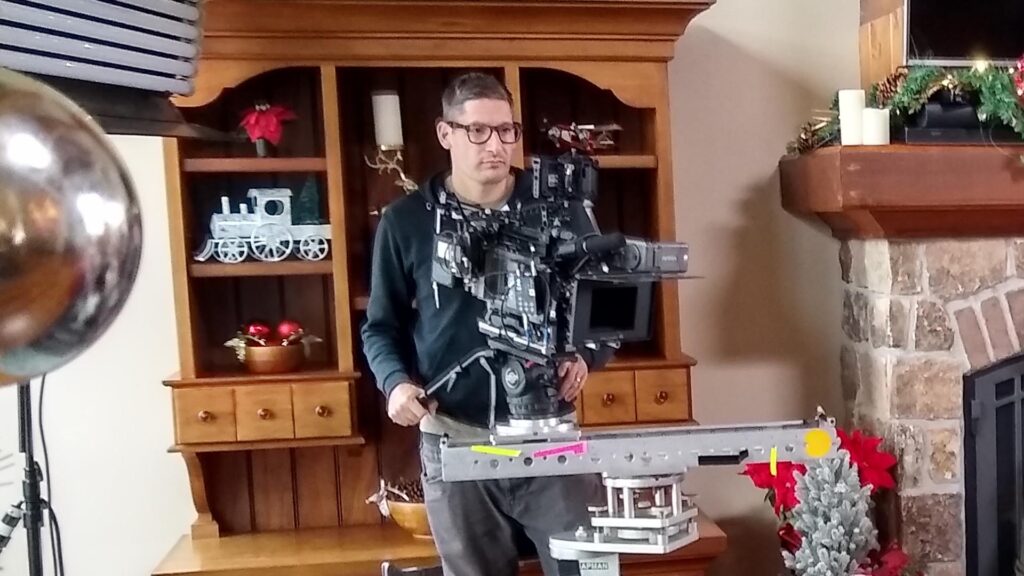Starting Your Career as a Director of Photography in the Film Industry

Embarking on a career as a Director of Photography (DP) in the film industry is an exciting and rewarding journey. As the visual storyteller of a film, a DP plays a crucial role in bringing a director’s vision to life. If you’re passionate about cinematography, here’s a quick guide to help you start your career as a Director of Photography in the dynamic world of filmmaking.
- Develop Your Skills:
- Study the Basics: Understand the fundamental principles of cinematography, including composition, lighting, camera angles, and movement.
- Technical Proficiency: Master the operation of various cameras, lenses, and lighting equipment. Stay updated with the latest technological advancements in the industry.
- Editing and Post-Production: Familiarize yourself with editing software and post-production processes. A strong understanding of the entire filmmaking workflow is essential.
2. Gain Practical Experience:
- Assist Established DPs: Seek opportunities to work as a camera assistant or a gaffer under experienced DPs. Learn from their expertise and observe their techniques on set.
- Independent Projects: Collaborate on independent films, student projects, or local productions. Hands-on experience will hone your skills and build your portfolio.
- Networking: Attend film festivals, industry events, and local filmmaking meetups. Networking is key to finding potential projects and connecting with fellow professionals.
3. Build a Portfolio:
- Create a Reel: Compile your best work into a professional demo reel showcasing your skills in cinematography. Your reel should highlight a variety of styles and genres.
- Online Presence: Establish a website or a portfolio on platforms like Vimeo or Behance. Display your portfolio, reel, and a brief biography to attract potential employers.
- Collaborate with Filmmakers: Partner with directors, producers, and fellow crew members to expand your portfolio. A diverse range of projects demonstrates your versatility.
4. Continuous Learning:
- Film School: Consider enrolling in a reputable film school or cinematography program. Formal education provides structured learning and opportunities to collaborate with peers.
- Workshops and Online Courses: Attend workshops and online courses to learn new techniques and stay updated with industry trends. Many platforms offer specialized cinematography courses.
- Film Analysis: Study films critically. Analyze the work of renowned DPs to understand their choices in framing, lighting, and camera movement.
5. Be Adaptable and Collaborative:
- Communication Skills: Develop strong communication skills to effectively collaborate with directors, producers, and the entire film crew. Understanding the director’s vision and translating it visually is crucial.
- Adaptability: Be flexible and adaptable on set. Filmmaking often involves unexpected challenges, and your ability to adapt creatively and technically is invaluable.
6. Seek Job Opportunities:
- Freelancing: Many DPs start their careers as freelancers. Build relationships with production companies, studios, and agencies. Freelancing offers diverse projects and exposure to different styles.
- Production Companies: Apply to production companies specializing in commercials, music videos, or films. These companies often hire DPs for their projects.
- Film Festivals and Competitions: Submit your work to film festivals and competitions. Recognition can lead to job offers and collaborations with established filmmakers.
Becoming a successful Director of Photography requires dedication, continuous learning, practical experience, and effective collaboration. By honing your skills, building a strong portfolio, and networking within the industry, you can carve a fulfilling and enduring career as a visual storyteller in the fascinating world of filmmaking. Remember, every project is an opportunity to learn and grow, so embrace each experience with enthusiasm and creativity.




